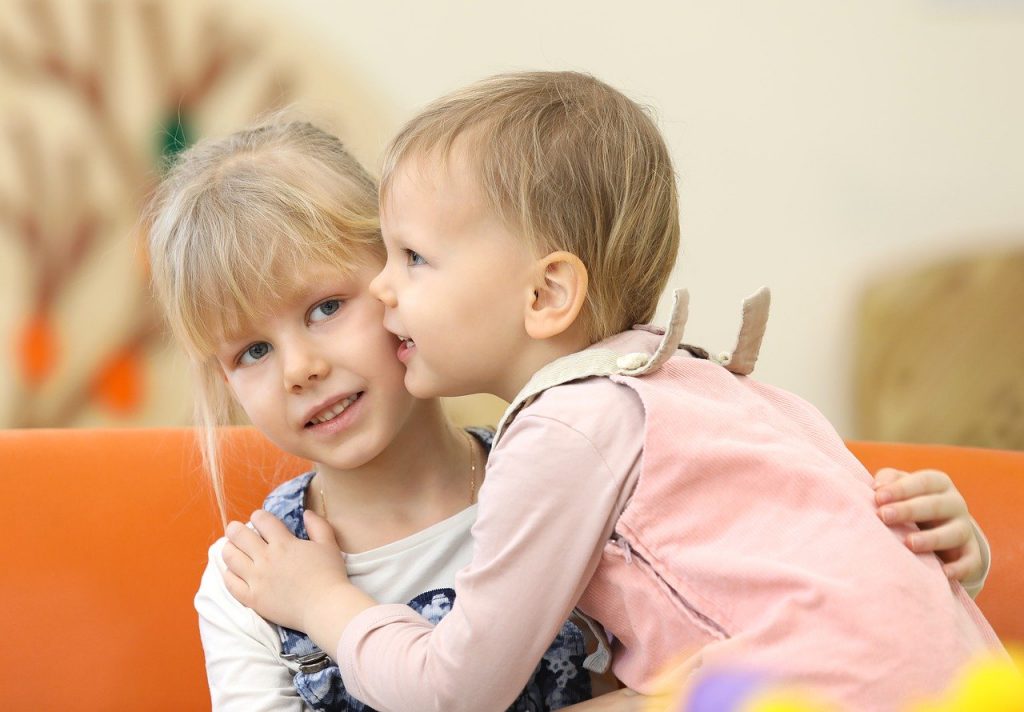
Telling kids about divorce has got to be one of the most challenging moments in the entire divorce process. It’s important to approach this conversation with care; research indicates that children remember the moment of finding about their parents’ divorce for the rest of their lives. Here are some ways to make that memory a little less shocking.
Choose a Safe Place and a Time When You Don’t Have Other Obligations
Don’t try to distract your children from this news by doing it before something fun; some parents choose to break the news before a birthday party or planned outing, hoping that it will soften the blow or provide an instant distraction. This may associate that fun activity or place with the memory of divorce, as well as not give them a chance to begin to process their feelings. Instead, choose to have the discussion when you have nothing else planned, and have the conversation in a private place where they feel safe; most often this is their home. Your children need as much time as possible to cry, ask questions, retreat and/or begin to grieve, and to be in a safe environment that lets them feel free to do that.
Make Sure Both Parents Are Present
No matter how hard it may be for both of you to be together in the same space, both parents should be present when you have the divorce discussion with your kids (unless your situation involves abuse). This ensures that children see the divorce as a choice of both parents, rather than blaming one and viewing the other as the “good” or “innocent” parent. This also reinforces that both parents will continue to be present in their lives.
Plan the Conversation with the Other Parent
While it may be difficult to have earnest, painful conversations with your ex-partner at the moment, try to take some time to discuss how you want to tell the children, what information you want to convey, and what information you want to leave out. Presenting a united front is crucial, especially as you begin your journey as co-parents. Try to anticipate your children’s reactions and the questions they may have, and role play how you will answer so you both will be on the same page.
Reassure Your Children of Your Love
Realizing that their parents can stop loving each other often makes children insecure. They may wonder if you are able to stop loving them, too. Reassure your children of both parents’ continuing love, and make it a priority to make them feel loved by both of you throughout the divorce process.
Answer Their Questions
Many parents try to shut down children’s questions out of fear or a misguided thought that the less the children know, the less stress will be passed on to them. Remember, though, that your main objective right now is to help your children feel safe and give them enough information to process the new reality. Vow to answer their questions in an age-appropriate way that preserves a positive view of both parents. Let them know that you’re available to answer any questions that come up as you move through the divorce. This does not mean that they should be privy to every detail, or that adult situations should be discussed. The goal is to reassure them that even though the family structure is changing, each parent’s relationship with them will continue, that they remain a valuable part of the family, and that their questions are valid.
Allow Them to Have Their Feelings
As a parent, it’s hard to see your children suffer. You may feel like encouraging them to stay strong, be brave, or put a smile on their faces and focus on being positive. Instead, allow them to be sad; let them know you’re sad, too. Let them mourn the loss of their family in its current shape and allow them to process these feelings at their own pace. Let them be angry; let them know that you’re angry too. And that it’s normal and okay to have all these feelings, and okay to be confused by them all. If you feel that their reactions become concerning, or they are truly struggling to come to terms with the new situation, you may want to have them see a pediatric therapist or counselor to help them work through their feelings in a healthy way.
Using this initial conversation to reinforce both parents’ love and continued involvement will set up the new family structure in a constructive way that will help everyone adjust in the best way possible. With the right legal counsel, you can also move through the divorce process in a way that minimizes conflict, setting up a healthier co-parenting relationship that benefits everyone in the family. Explore your options now by contacting Hargrave Family Law.





























